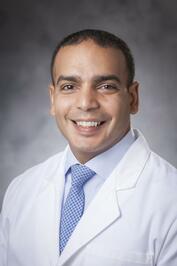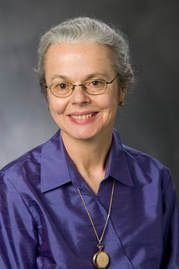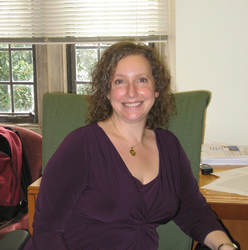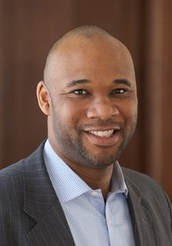Plenary Speakers
"They Sat Down on the Ground with Him..." Responding to Job's Suffering

Muhammad Abd-El-Barr
Assistant Professor of Neurosurgery, Duke University
Chief of Traumatic and Degenerative Spine Disorders at the Durham VA Center
Muhammad Abd-El-Barr is currently Assistant Professor of Neurosurgery at Duke University and the Chief of Traumatic and Degenerative Spine Disorders at the Durham VA Center. Dr. Abd-El-Barr specializes in Spine Surgery and the use of minimally-invasive methods to reduce pain, length of stay and morbidity to patients. Prior to coming to Duke, Dr. Abd-El-Barr completed his residency and fellowship training at the Brigham and Women’s/Boston Children’s Hospitals/Harvard Medical School.
Assistant Professor of Neurosurgery, Duke University
Chief of Traumatic and Degenerative Spine Disorders at the Durham VA Center
Muhammad Abd-El-Barr is currently Assistant Professor of Neurosurgery at Duke University and the Chief of Traumatic and Degenerative Spine Disorders at the Durham VA Center. Dr. Abd-El-Barr specializes in Spine Surgery and the use of minimally-invasive methods to reduce pain, length of stay and morbidity to patients. Prior to coming to Duke, Dr. Abd-El-Barr completed his residency and fellowship training at the Brigham and Women’s/Boston Children’s Hospitals/Harvard Medical School.

Ellen F. Davis, MDiv, PhD
Professor of Bible and Practical Theology
Duke Divinity School
Ellen F. Davis is Amos Ragan Kearns Professor of Bible and Practical Theology at Duke Divinity School. The author of eleven books and many articles, her research interests focus on how biblical interpretation bears on the life of faith communities and their response to urgent public issues, particularly the ecological crisis and interfaith relations. Scripture, Culture, and Agriculture: An Agrarian Reading of the Bible (Cambridge University Press, 2009), integrates biblical studies with a critique of industrial agriculture and food production. Biblical Prophecy: Perspectives for Christian Theology, Discipleship and Ministry (Westminster John Knox, 2014), explores the prophetic role and word across both Testaments of the Christian Bible. Her most recent books are Preaching the Luminous Word (Eerdmans, 2016), a collection of sermons and essays, and Opening Israel’s Scriptures (Oxford 2019), a comprehensive theological reading of the Hebrew Bible/Old Testament. A lay Episcopalian, she has long been active as a theological consultant within the Anglican Communion. Her current work explores the arts as modes of scriptural interpretation.
Professor of Bible and Practical Theology
Duke Divinity School
Ellen F. Davis is Amos Ragan Kearns Professor of Bible and Practical Theology at Duke Divinity School. The author of eleven books and many articles, her research interests focus on how biblical interpretation bears on the life of faith communities and their response to urgent public issues, particularly the ecological crisis and interfaith relations. Scripture, Culture, and Agriculture: An Agrarian Reading of the Bible (Cambridge University Press, 2009), integrates biblical studies with a critique of industrial agriculture and food production. Biblical Prophecy: Perspectives for Christian Theology, Discipleship and Ministry (Westminster John Knox, 2014), explores the prophetic role and word across both Testaments of the Christian Bible. Her most recent books are Preaching the Luminous Word (Eerdmans, 2016), a collection of sermons and essays, and Opening Israel’s Scriptures (Oxford 2019), a comprehensive theological reading of the Hebrew Bible/Old Testament. A lay Episcopalian, she has long been active as a theological consultant within the Anglican Communion. Her current work explores the arts as modes of scriptural interpretation.

Laura Lieber, PhD
Professor of Religious Studies
Duke University
Laura Lieber is Professor of Religious Studies at Duke University, where she directs the Duke Center for Jewish Studies as well as the Duke-UNC Center for Late Ancient Studies. She holds secondary appointments in Classics, German Language and Literature, and the Duke Divinity School. A native of Fayetteville, Arkansas, she received her BA in English Literature and Classics from the University of Arkansas (1994), has rabbinic ordination from the Hebrew Union College-Jewish Institute of Religion (1999), and holds a PhD in the History of Judaism from the University of Chicago (2003) . Prior to coming to Duke, she was Assistant Professor of Classics and Religion at Middlebury College (2003-2008). Her most recent books are A Vocabulary of Desire: The Song of Songs in the Early Synagogue (2014) and Jewish Aramaic Poetry from Anquity (2018). She has held ACLS and National Humanities Center fellowships, and received Grant's from the American Philosophical Society and the Memorial Foundation for Jewish Culture. While her research focuses on Jewish life and culture in the Roman world, Lieber's teaching spans from the biblical period to the present day. She is a Service Learning fellow and a fellow in the Center for Instructional Technology.
Professor of Religious Studies
Duke University
Laura Lieber is Professor of Religious Studies at Duke University, where she directs the Duke Center for Jewish Studies as well as the Duke-UNC Center for Late Ancient Studies. She holds secondary appointments in Classics, German Language and Literature, and the Duke Divinity School. A native of Fayetteville, Arkansas, she received her BA in English Literature and Classics from the University of Arkansas (1994), has rabbinic ordination from the Hebrew Union College-Jewish Institute of Religion (1999), and holds a PhD in the History of Judaism from the University of Chicago (2003) . Prior to coming to Duke, she was Assistant Professor of Classics and Religion at Middlebury College (2003-2008). Her most recent books are A Vocabulary of Desire: The Song of Songs in the Early Synagogue (2014) and Jewish Aramaic Poetry from Anquity (2018). She has held ACLS and National Humanities Center fellowships, and received Grant's from the American Philosophical Society and the Memorial Foundation for Jewish Culture. While her research focuses on Jewish life and culture in the Roman world, Lieber's teaching spans from the biblical period to the present day. She is a Service Learning fellow and a fellow in the Center for Instructional Technology.
Structural Racism and Health Disparities--Legacies of the Past, Challenges for the Future

Jeffrey Baker, MD, PhD
Director of the Trent Center for Bioethics, Humanities & History of Medicine
Professor of Pediatrics and History, Duke Children's Primary Care
Duke University
Dr. Jeffrey Baker is Professor of Pediatrics and History at Duke University School of Medicine, where he serves as Director of the Trent Center for Bioethics, Humanities, and History of Medicine. He has practiced for over 25 years as a general pediatrician with a focus on children with autism and special needs. Dr. Baker’s publications have also centered on child health, most notably the history of neonatal medicine, vaccine controversies, and autism. He has taught a wide variety of historical topics to undergraduate and health profession students, including the history of medical ethics, disability, and race in medicine. Dr. Baker is currently a co-leader of a project, “Documenting Durham’s Health History: Understanding the Roots of Health Disparities in the ‘City of Medicine.’” The project’s goal is to produce a documentary exhibition exploring how the themes of trust and inequities have played out over time between Duke University Health System and its local community.

Patrick T. Smith, MDiv, PhD
Associate Research Professor of Theological Ethics and Bioethics, and
Senior Fellow at the Kenan Institute of Ethics
Duke University
Patrick T. Smith is Associate Research Professor of Theological Ethics and Bioethics at Duke Divinity School, a Senior Fellow at the Kenan Institute of Ethics, Duke University, and associate faculty with the Trent Center for Bioethics, Humanities, and the History of Medicine at Duke University School of Medicine. Before coming to Duke he served as core faculty for the Master of Bioethics degree program at the Center for Bioethics, Harvard Medical School. Patrick also has worked professionally in clinical contexts dealing with the ethics of hospice care. For eight years he served as the ethics coordinator for Angela Hospice Care Center in Livonia, MI. During some of that time he served on the Ethics Advisory Council for the National Hospice and Palliative Care Organization and as a board member for the Hospice Palliative Care Association of Michigan. As a student and product of the black Baptist church tradition that flows from the African-American Christian experience, he seeks to integrate its spiritual, theological, and ethical resources for a public theology that bears witness in the form of a robust social ethic. He currently serves on the Board of Directors for the American Society for Bioethics and Humanities and is the recipient of the 2019 Paul Ramsey Award for Excellence in Bioethics.
Medicine, Health, and the Suffering Soul

Rev. Professor John Swinton
Professor in Practical Theology and Pastoral Care
School of Divinity, History and Philosophy
King's College
University of Aberdeen
Professor John Swinton is an ordained minister of the Church of Scotland who for more than a decade worked as a registered nurse specializing in psychiatry and learning disabilities. He also worked for a number of years as a hospital and community Chaplain. In 2004, he founded the University of Aberdeen’s Centre for Spirituality, Health and Disability. Professor Swinton has published widely within the area of practical theology, disability theology, mental health, qualitative research and pastoral care. He is the author of a number of monographs including Becoming Friends of Time: Disability, Timefullness, and Gentle Discipleship (Baylor Academic Press 2016), Dementia: Living in the Memories of God (Eerdmans 2014), Raging With Compassion: Theological Responses to the Problem of Evil (Eerdmans 2006), and Spirituality in Mental Health Care: Rediscovering a “Forgotten “Dimension (Jessica Kingsley Publishers 2001). His book Dementia won the Archbishop of Canterbury’s Ramsey Prize for excellence in theological writing. In 2017, his most recent book Becoming Friends of Time: Time, Disability and the Art of Gentle Discipleship, won the award of merit for theology and ethics in the Christianity today book awards for 2017.
Professor in Practical Theology and Pastoral Care
School of Divinity, History and Philosophy
King's College
University of Aberdeen
Professor John Swinton is an ordained minister of the Church of Scotland who for more than a decade worked as a registered nurse specializing in psychiatry and learning disabilities. He also worked for a number of years as a hospital and community Chaplain. In 2004, he founded the University of Aberdeen’s Centre for Spirituality, Health and Disability. Professor Swinton has published widely within the area of practical theology, disability theology, mental health, qualitative research and pastoral care. He is the author of a number of monographs including Becoming Friends of Time: Disability, Timefullness, and Gentle Discipleship (Baylor Academic Press 2016), Dementia: Living in the Memories of God (Eerdmans 2014), Raging With Compassion: Theological Responses to the Problem of Evil (Eerdmans 2006), and Spirituality in Mental Health Care: Rediscovering a “Forgotten “Dimension (Jessica Kingsley Publishers 2001). His book Dementia won the Archbishop of Canterbury’s Ramsey Prize for excellence in theological writing. In 2017, his most recent book Becoming Friends of Time: Time, Disability and the Art of Gentle Discipleship, won the award of merit for theology and ethics in the Christianity today book awards for 2017.

Samaiya Mushtaq, MD
UT Southwestern
Dr. Samaiya Mushtaq is a physician in her final year of psychiatry residency training in Dallas, Texas. She studied chemistry and women's studies as a President's Scholar at Southern Methodist University, from where she graduated summa cum laude, and completed medical school at Vanderbilt University. Samaiya is currently on the clinician-educator track at UT Southwestern Medical Center. She conducts research on help-seeking behaviors and wellness in Muslim Americans and has designed and taught curricula integrating Islamic spirituality with evidence-based concepts in mental wellness to college MSAs, young professional Muslim groups, and community organizations. Samaiya has also started a cross-department network supporting and connecting Muslim housestaff at UT Southwestern. Her work has been presented at her departmental Grand Rounds at UT Southwestern, AADPRT, and the annual Conference on Medicine and Religion. She recently co-authored a chapter on Islamophobia experienced by clinicians in the book, Islamophobia and Psychiatry, and is a recipient of AADPRT's George Ginsberg Fellowship Award honoring achievement in psychiatric education.
UT Southwestern
Dr. Samaiya Mushtaq is a physician in her final year of psychiatry residency training in Dallas, Texas. She studied chemistry and women's studies as a President's Scholar at Southern Methodist University, from where she graduated summa cum laude, and completed medical school at Vanderbilt University. Samaiya is currently on the clinician-educator track at UT Southwestern Medical Center. She conducts research on help-seeking behaviors and wellness in Muslim Americans and has designed and taught curricula integrating Islamic spirituality with evidence-based concepts in mental wellness to college MSAs, young professional Muslim groups, and community organizations. Samaiya has also started a cross-department network supporting and connecting Muslim housestaff at UT Southwestern. Her work has been presented at her departmental Grand Rounds at UT Southwestern, AADPRT, and the annual Conference on Medicine and Religion. She recently co-authored a chapter on Islamophobia experienced by clinicians in the book, Islamophobia and Psychiatry, and is a recipient of AADPRT's George Ginsberg Fellowship Award honoring achievement in psychiatric education.
